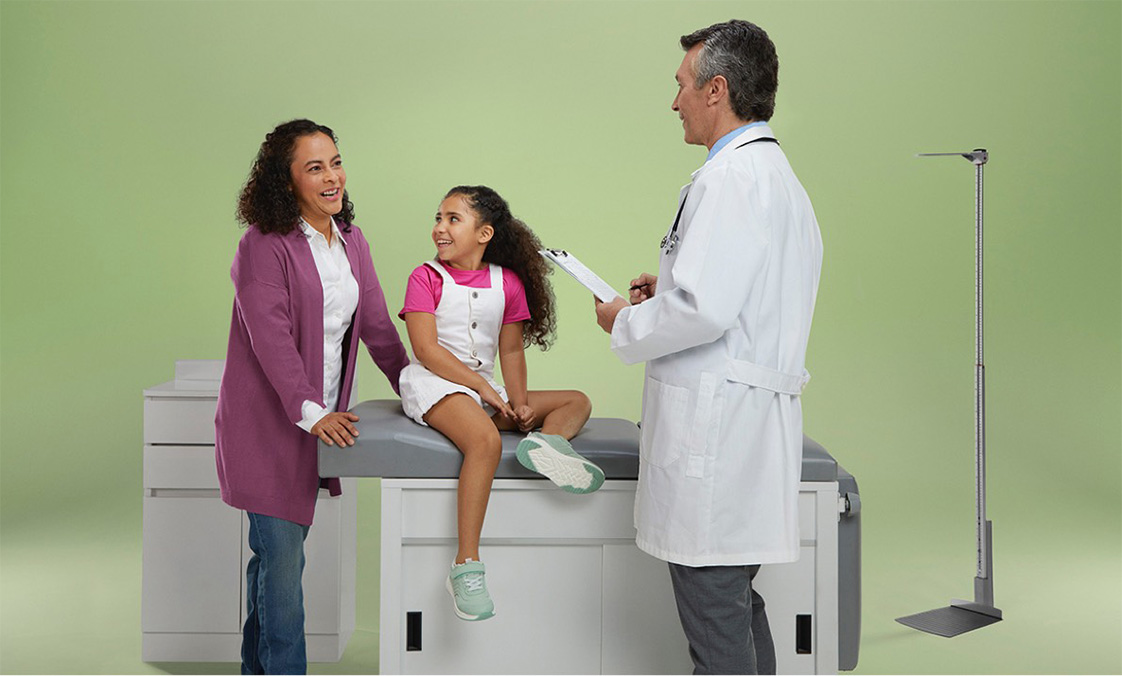What Warnings should I know
about SKYTROFA?
There have been reports of death
when using treatments like SKYTROFA in patients with
critical illness due to complications following certain
surgeries, severe injury, or in people with respiratory
failure.
Severe hypersensitivity
reactions including anaphylactic reactions and swelling
underneath the skin, have been reported during use with
treatments like SKYTROFA. Seek medical help right away if
the following happen after administering SKYTROFA: hives,
trouble breathing, and swelling of the face, eyes, lips, or
mouth. Do not use if there is any history of
hypersensitivity reactions to any ingredients in SKYTROFA.
Childhood cancer survivors
treated with brain/head radiation are at increased risk of
secondary cancers and, as a precaution, need to be monitored
for recurrence. Changes in behavior, new headaches, vision
disturbances or changes in skin color or changes in
birthmarks or moles should be discussed with the healthcare
provider.
Children with certain rare
genetic causes of short stature have an increased risk of
developing cancer. Talk with the healthcare provider about
risks and benefits of starting SKYTROFA.
Patients may develop impaired
glucose tolerance or Type 2 diabetes or have a worsening of
diabetes when using SKYTROFA. Dosage of diabetes medicines
may need to be adjusted during growth hormone treatment.
Increased pressure in the brain
has been reported in a small number of patients taking
treatments like SKYTROFA, which can cause changes in vision,
headache, nausea or vomiting. Treatment may be reduced or
stopped if any of these conditions occur.
SKYTROFA can cause the body to
retain fluid which may cause swelling, joint pain, or muscle
pain, and usually goes away after treatment is stopped or
dose is reduced.
Patients taking SKYTROFA who
have or are at risk for pituitary hormone deficiencies may
be at risk for reduced serum cortisol levels and/or
unmasking of central hypoadrenalism. Patients should be
checked regularly for low serum cortisol levels and/or the
need to increase the dose of the glucocorticoids they are
taking.
Thyroid function should be
monitored as low thyroid levels can cause SKYTROFA to not
work. Low thyroid hormone levels may become apparent or
worsen during SKYTROFA treatment.
In children experiencing rapid
growth, limping or hip or knee pain may occur. If a child
being treated with SKYTROFA starts to limp or gets hip or
knee pain, the child’s doctor should be notified and the
child should be examined.
In children experiencing rapid
growth, curvature of the spine may worsen, known as
scoliosis. Patients with scoliosis should be checked
regularly to make sure their scoliosis does not get worse
during treatment with SKYTROFA.
SKYTROFA can cause inflammation
of the pancreas which may cause pain in the area of the
stomach.
SKYTROFA can cause loss of fat
tissue around the injection site with continued use.
Injection sites should be different each time SKYTROFA is
administered to prevent this risk.
SKYTROFA should not be used in
patients with Prader-Willi syndrome who are very overweight
or who have severe breathing problems due to risk of death.
SKYTROFA is not indicated for treatment of Prader-Willi
syndrome.
These are not all of the possible side effects of SKYTROFA. Call
your doctor for medical advice about side effects. You are encouraged to report side
effects to FDA at 1-800-FDA-1088 or at www.fda.gov/medwatch.
You may also report side effects to Ascendis Pharma at 1-844-442-7236.
The product information provided in this site is intended only
for residents of the US. The health information contained herein
is provided for educational purposes only
and is not intended to replace discussions with a healthcare
provider.







